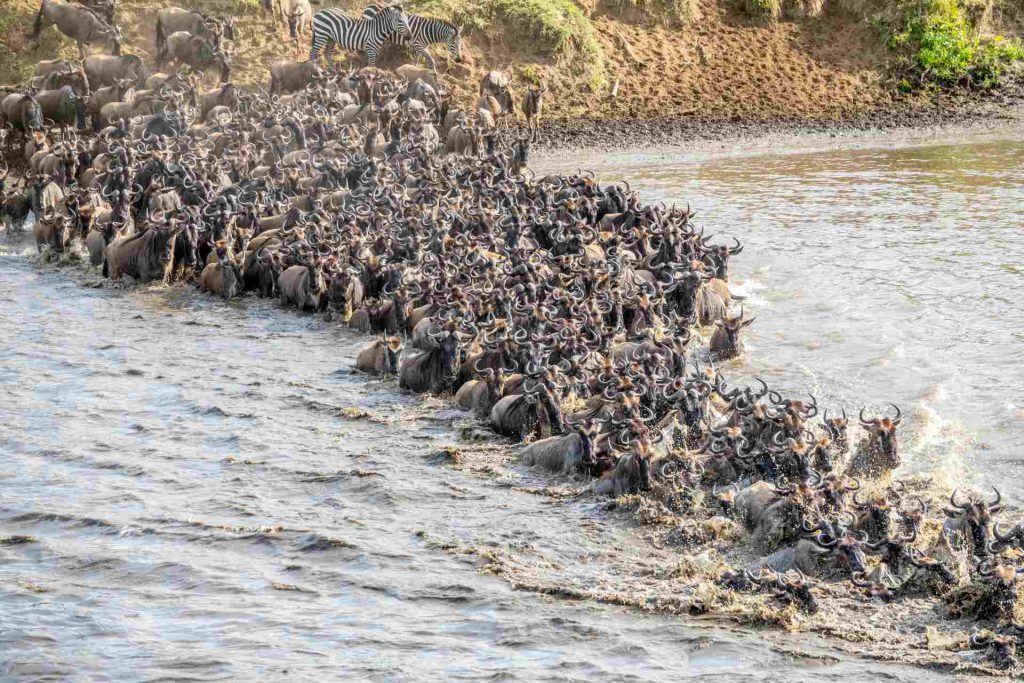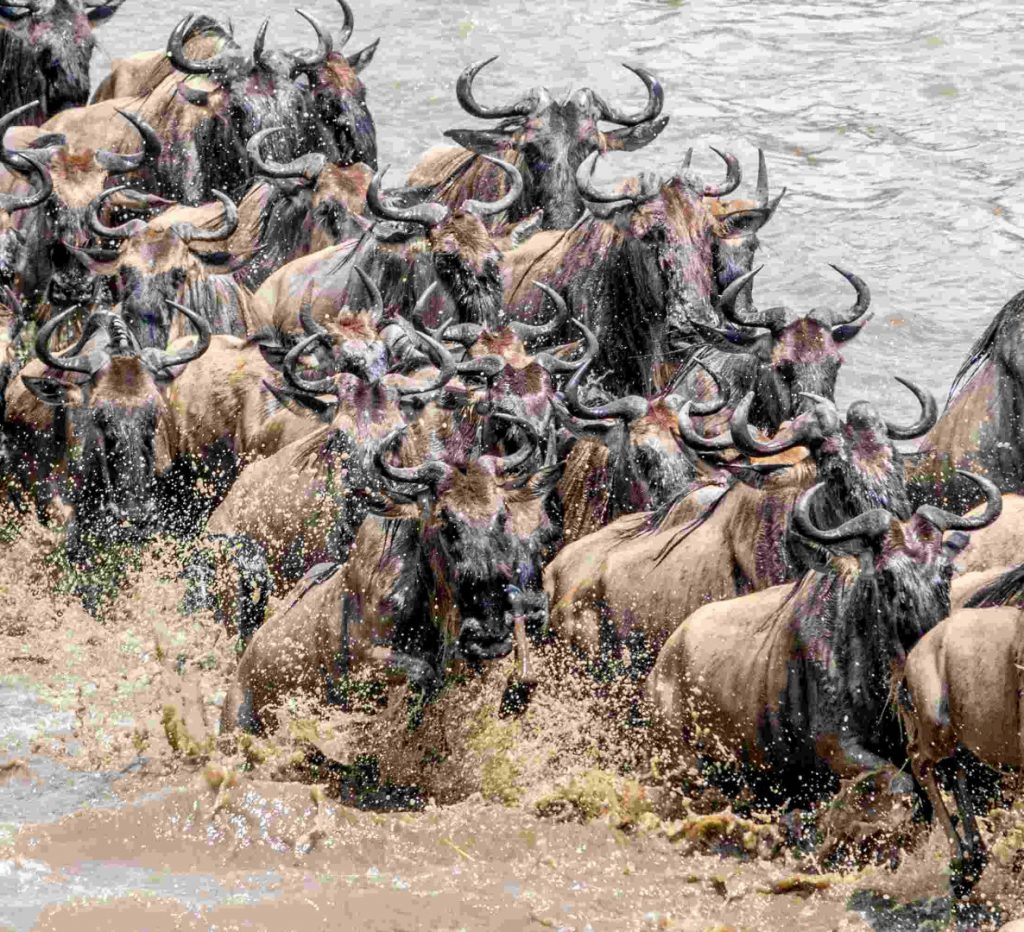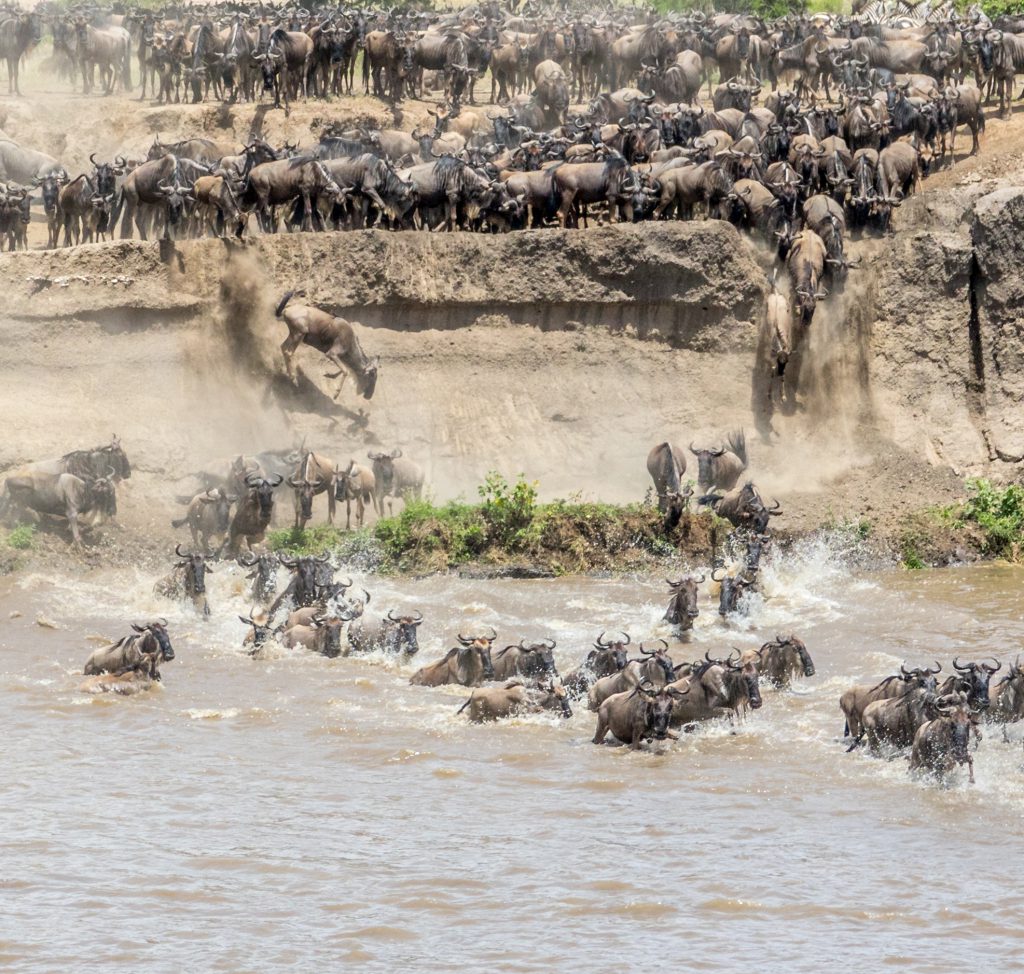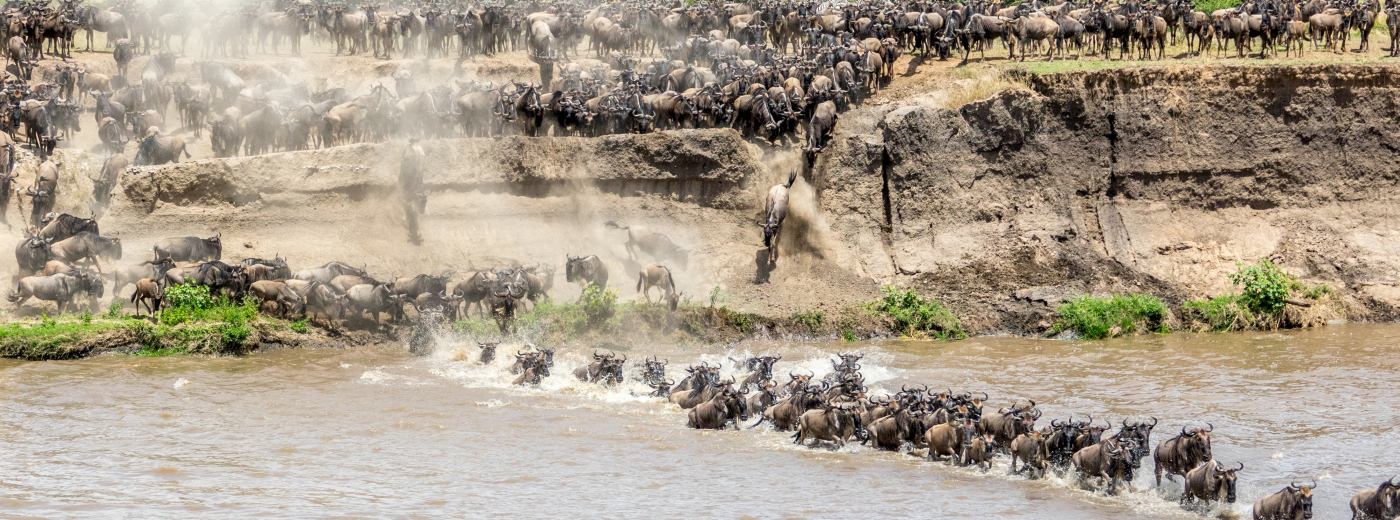You sit. You wait. You watch.
This could be the opening line for a lot of things I guess – going to the cinema to see your favourite film maybe? Going to a live sporting event – be it a soccer or rugby match, Wimbledon, a Grand Prix, even the Olympics. Or even lounging on your couch in your living room waiting for the next episode of your favourite soap or drama to come onto the TV screen.
But what I am talking about here is something way way WAY more exciting, thrilling, memorable and amazing. It is the opportunity to be at the ‘Greatest Show on Earth’ – the wildebeest Great Migration as they cross the infamous Mara River.
From July onwards, millions of wildebeest arrive at the steep banks of the Mara River in either Tanzania’s northern Serengeti National Park or Kenya’s Masai Mara, having set off from the southern Serengeti plains 4 or so months previously. Tired but anxious to cross the river and head to the lush and fresh grazing grasslands in the Mara, they amass together in a huge group and line the river bank, cautiously eyeing the swirling river below, the slippery rocks and the huge jaws of the waiting resident crocodiles.
The wildebeest instinctively know where to head to. Along the river, which travels through the Serengeti and the Masai Mara, there are known river crossing points which for years and years have been used by their ancestors who have done this same route. Maybe some of the wildebeest are ‘old timers’ who should be wearing the ‘been here, done it, and survived’ t-shirt – so they are now the new leaders. Nobody really knows but without fail, the river crossing points become the meeting point for those wildebeest who want to make the perilous crossing.
But as a visitor to their land, you need patience and a lot of time. Coming to East Africa to see a river crossing, be it in Tanzania or Kenya during the months of July through to October, is not something that can ever be guaranteed. Yes, you will be sure you will have a fantastic safari experience, as aside from the wildebeest the general game is outstanding of course, and there are always eager predators such as lion, leopard and hyena hanging around the herds waiting for an easy lunchtime snack. But knowing when and where the wildebeest will cross – well, that is another matter and something that nobody can predict.
The wildebeest can amass for a day or two on one side of the river. They may approach the edge as a group, and you can be sitting in your game vehicle fully expecting to see the entire herd of thousands just make that committed jump and like lemings cross the river one behind the other. You have your camera and video at the ready, and you are poised for some excitement.
Then within 20 minutes, the herds have retraced their steps and moved away from the river to resume their grazing, heads down and completely oblivious to the frustration they have just caused. Only to then return to the same position in an hours time, assess the situation, then return again to their grazing.
Or you can be lucky. All it takes is one lone wildebeest, either a very brave one to take the plunge first, or a very clumsy one who is pushed from behind – either way, once one goes, they all go. One after the other, they throw themselves into the water.
There is noise, there is adrenelin, there is frantic thrashing around in the water as hundreds and hundreds and hundreds of wildebeest and sometimes zebra begin to make their way across the river to the opposite bank. Some swim, some leap from rock to rock, some disappear under the water having fallen victim to a huge crocodile or just out of sheer exhaustion.
As a safari goer, witnessing this spectacle first hand is a true bucket list item. But you need patience and you need to give yourself time. The wildebeest do not cross to order, neither do they cross at set times on set days! Going for just one night and expecting to see a river crossing on your first game drive may leave you bitterly disappointed. Instead, give yourself ample time in the area – 3 nights is perfect, 4 even better, a week is superb. If this is what you have come to Africa to see, make sure you give yourself the best chance to be at the right place at the right time.
Whilst we know that for many safari addicts, this bucket list dream may not have been be possible to plan for 2021 due to Covid travel restrictions, but there is no reason why you cannot realistically plan to be there in 2022 or even 2023.
Due to pent up demand, we are already seeing confirmed bookings coming through for 2022 and camps are already seeing high levels of occupancy. So if this is your dream safari, then make it happen! Don’t let the chance pass you by for another year. Our team are ready to help you plan a memorable trip so do get in touch with us!
And one last word of advice – as and when you get there, do make sure your camera is charged! I was at my very first river crossing in Kenya and just as the first wildebeest took the plunge, my camera gave up the ghost in terms of battery life. My fault entirely. I had to rely on my mobile phone to take pictures which were OK in the end but not of the same quality as my sophisticated camera with its great zoom lens would have managed! Needless to say, the second time I got the chance to see a river crossing the camera was suitably charged and I had spare batteries just in case!

Mara River Crossing 
Swim or Sink

Taking the Plunge

